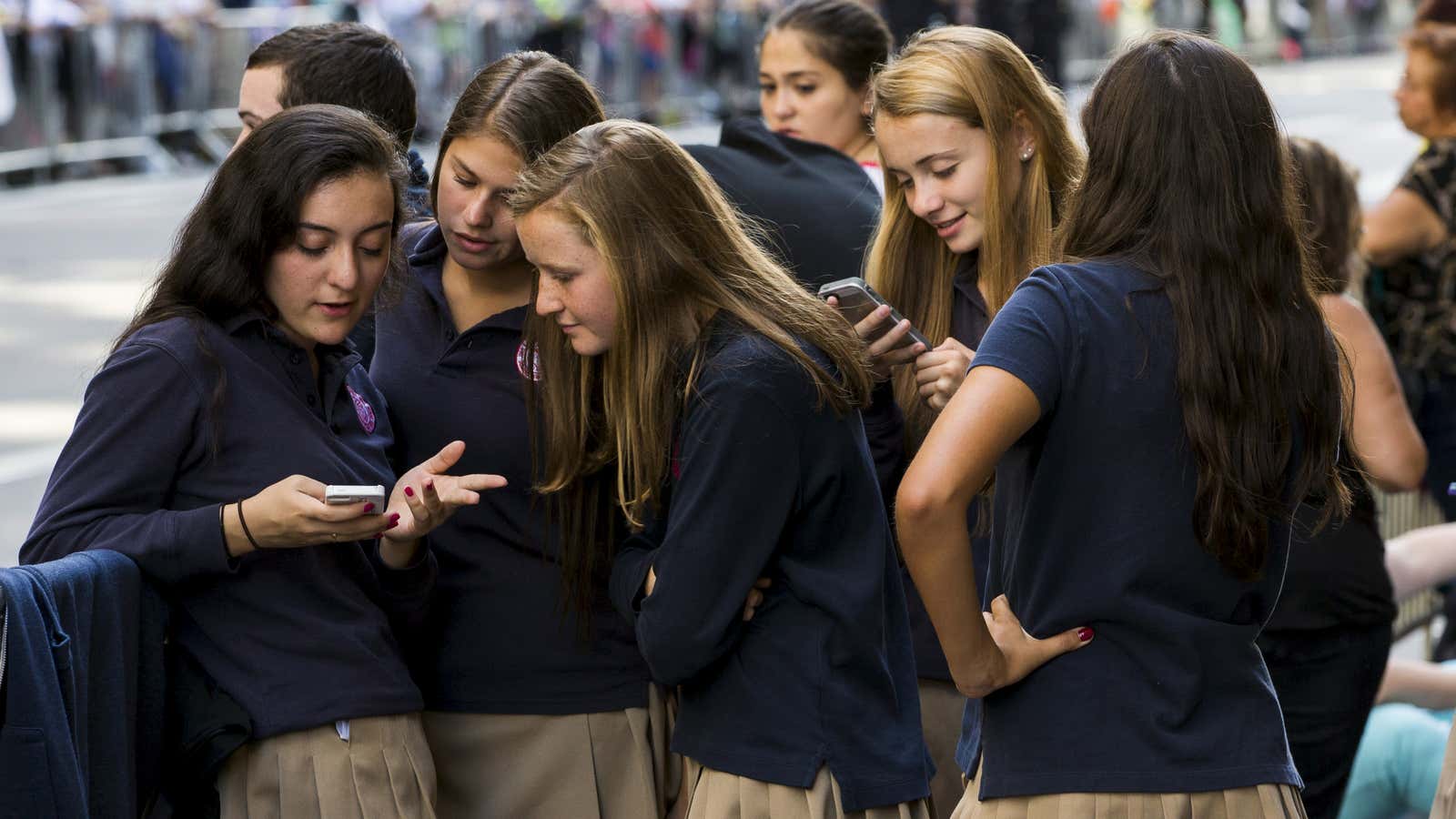The Oxford English Dictionary has been documenting the language for more than a century and is the largest of its kind. Yet slang in a social media world always seems one step ahead.
As a historical dictionary, the OED is interested in the meaning of words and also the changes in usage over time. To help produce its comprehensive record, OED has launched an appeal to teenagers to tweet or write in about the latest words that they’ve been using.
On its website, the OED explained: “Young people’s language today can be particularly elusive—because the terms that are in vogue change so rapidly and newer ephemeral modes of communication (texting, WhatsApp, Snapchat, etc.) make it difficult to monitor and record this kind of vocabulary.” Through its appeal, which extends to anyone who interacts with, or is, a young person, the dictionary hopes to get a better sense of “the language used by children and teenagers today.”
“Bare” is one example of slang that the OED has been following in order to add a new entry, a draft of which explains that this particular use of the word means: “many or much; a lot of.” Users on Twitter have already responded using the hash-tag, #YouthSlangAppeal, although some also point out that the OED is lagging behind on a few long-loved terms.
Apart from being a clever way to crowdsource linguistic intel, the OED’s mass appeal is also a step toward democratizing how we understand language. The OED is a venerable source, and as Coco Khan points out in The Guardian, this outreach tells young people their language is “established, bona fide, and must be accepted,” writing:
That such an institution is reaching out to the public to help is a reminder that language is made by us all, and not dictated from ivory towers. It is a bottom-up phenomenon. In a society wrought by intergenerational inequality, it is a wonderful message to the young, to tell them that their daily lives matter and are worthy of recording.
